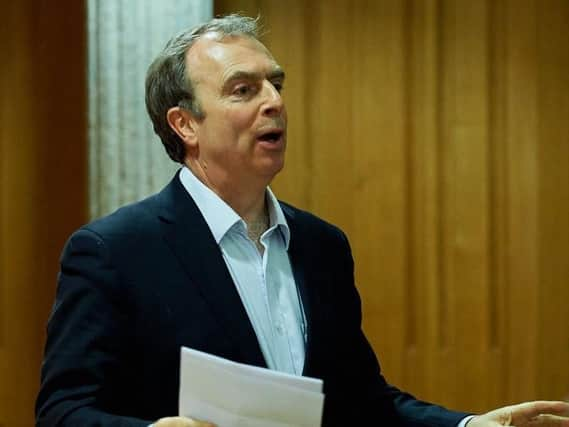Edinburgh International Book Festival: Peter Hitchens and David Nicholls


It wasn’t glorious, because no war is. We weren’t at risk of imminent invasion because Hitler hadn’t even got round to assembling any landing craft. Dunkirk was an appalling defeat, not a glorious victory. We certainly weren’t fighting to save the Jews, our bombing of civilian targets was monstrous even at the time, and our guarantees to Poland were made knowing that we couldn’t possibly fulfil them.
The war transferred all of our national wealth to the vaults of Fort Knox, and when peace was finally made, all we could really claim was that we had defeated the worst European power with the massive help of the second worst one.
Advertisement
Hide AdWhatever about that, there is at least a tiny kernel of truth to some of his critique of Britain in the Second World War, though it is far from the whole truth – which is, surely, as a questioner at the end pointed out, that wars are messy and, when examined in detail, it is always easy to find mistakes in their conduct. And even Hitchens, while keen to demolish the Finest Hour myth, had to admit that, in 1940 at any rate, Churchill really was indispensable.
He has written about love and coming of age before in Starter for Ten, but in his new novel Sweet Sorrow – of his five, the one he feels proudest of, he told interviewer Sally Magnusson – he wanted to do so again. “Because that time when you’re 16 or 17, is when you are still in a state of flux and just about beginning to ‘set’. And it’s important to be honest about how awkward and painful it can be. I did things then still make my shoulders rise to my ears.” He declined to elaborate, but he did at least read the funniest passage about that great teenage rite – The First Kiss – that I’ve heard at any book festival.
Because he learnt this craft before he started writing novels, he said, his fiction is still dialogue heavy, and relies on a basic three-act structure and withholding information. He still hasn’t cracked screenwriting, he said (though anyone who saw his Bafta-winning adaptations of the Edward St Aubyn’s Patrick Melrose novels will disagree).
What he has cracked is the fine art of talking engagingly, informatively and modestly about his craft. Check out Sunday Morning with Sally Magnusson on Radio Scotland at the weekend, just after the ten o’clock news, and tell me if I’m wrong.